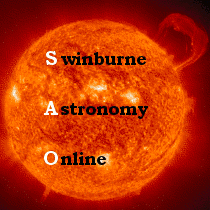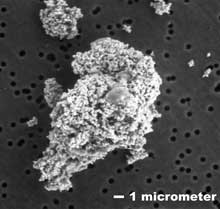Micrometeorite
If a meteoroid entering the Earth’s atmosphere is sufficiently small (generally less than 10-6 m ), it will be slowed by collisions with molecules in the upper atmosphere to a degree where ablation does not occur during its fall to Earth. These land as micrometeorites and constitute almost all of the interplanetary debris entering the Earth’s atmosphere every day. They are commonly found in places where the terrestrial dust content is low, such as ocean floor sediments, Antarctic ice and in the stratosphere.
See also: meteoroid
Study Astronomy Online at Swinburne University
All material is © Swinburne University of Technology except where indicated.


